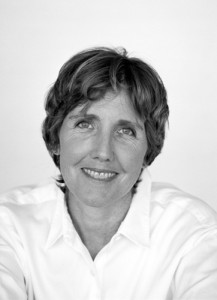By Lyda Kuth ‘78
I had writers block that started in high school. I wasn’t a good test-taker either. When I was considering colleges, I was drawn to the idea of a school that was less traditional, without papers to be written and final exams to be taken. So, I enrolled at Evergreen in 1972. Once there I discovered that I really loved the idea of a seminar, and the rich exchange when ideas can evolve openly and without judgment.
But the writer’s block prevailed and how I dealt with it, along with my desire to express myself as a creative person, became part of the story of my first movie, a personal documentary, “Love and Other Anxieties.” I’ll be on campus for a public screening of it on February 26th.
By the end of sophomore year at TESC, I was floundering, in more than one way. To tell you how badly, I had an individual study in Etching and Drawing. I would go to an empty classroom, with rows of those half desks you can write on—in this case a bad orange. And I had assigned myself drawing a cauliflower, which I was then going to transfer to an etching. I spent almost an entire semester at this. It was really all I did, “Still Life of Cauliflower”, and so it was a bit awkward both for my faculty adviser and me at evaluation time. It was time to leave.
I was gone for three years and in that time I worked at, ironically enough, a university bookstore where I ordered textbooks for all the classes I knew I wasn’t capable of taking. But eventually I did return because I knew I wanted my undergraduate degree, and I was thinking of a possible career in publishing or maybe graduate school in library science. Something, anything, to do with books.
I returned determined to take the writer’s block head on, and I looked forward to once again being in a seminar setting. In my determination to return to school, I kind of forgot I’d be about six years older than anyone else, so this proved to be somewhat alienating. My good fortune was to have Leo Dougherty as my faculty person. Because of, or perhaps in spite of an inappropriate crush on him, I worked hard in his class. He took it upon himself to write a Lab that took you through the Strunk and White book, Elements of Style, and gave exercises to practice the rules of grammar. This was manna to me. I diligently went through the workbook and mastered those things I only vaguely knew about, such as when it’s appropriate to use a semi-colon, and where the hell does the period go when dealing with quotation marks in different contexts. Doing this didn’t solve the writer’s block but what little I did get out on paper was grammatically correct.
Making my first movie had similar elements of struggle. I went in to the project thinking I’d learn how to shoot, edit, and otherwise make a film entirely by myself. It took trying (with a little help from experienced friends) to see what aspects of making a film I wanted to master and what I could leave to my collaborators. But understanding the rules, or “grammar”, of cinema, and its tools, gave me the push I needed to get my first film made.
It’s funny, but one of my favorite shots in the film takes place at Evergreen, when I’m traveling down a misty road with tall evergreens that form a tunnel. It could only be in the Pacific Northwest. We were on our way to interview professor Stephanie Coontz to ask her and her students about how marriage has evolved through history. In the shot I say one of the more provocative things in the film, which I won’t give away here. And the Evergreen students I interviewed were incredibly candid about their sex lives and what they expect from long-term relationships.
So, why do I return to TESC now? When you’ve reached your 50s, college life seems a ways back there. Yet many strands have connected me back to Evergreen, one of the most significant is spending the last several decades of my life married to a graduate from there, whom I didn’t meet until I came East. We share a memory of this place, and also have many jokes about our ridiculous lives back then that we each can relate to. But there is a deeper, more personal pull.
Even with writer’s block I think I understood that TESC was always going to be a place to explore, articulate, and communicate with other people those concepts that aren’t black and white, apparently obvious, or easily solved. That’s what happened in seminar, where I felt so at home. My time at TESC laid the groundwork for my willingness to explore the ambiguities of love, romance, and long-term attachment and, just as important, to say some things that most people keep hidden. That’s exactly what you’ll find in my film and I look forward to the conversation it will open up on campus.
Readers: Lyda will be on campus for a free screening of her film, ‘Love and Other Anxieties’ on 2/26/13



What a wonderful story! I’m inspired by your journey, and loved hearing how you met each challenge.
Do you, or does anyone at the college, know where Leo Dougherty’ grammar lab, with Stunk and White, is? What did you do? What were his exercises like?